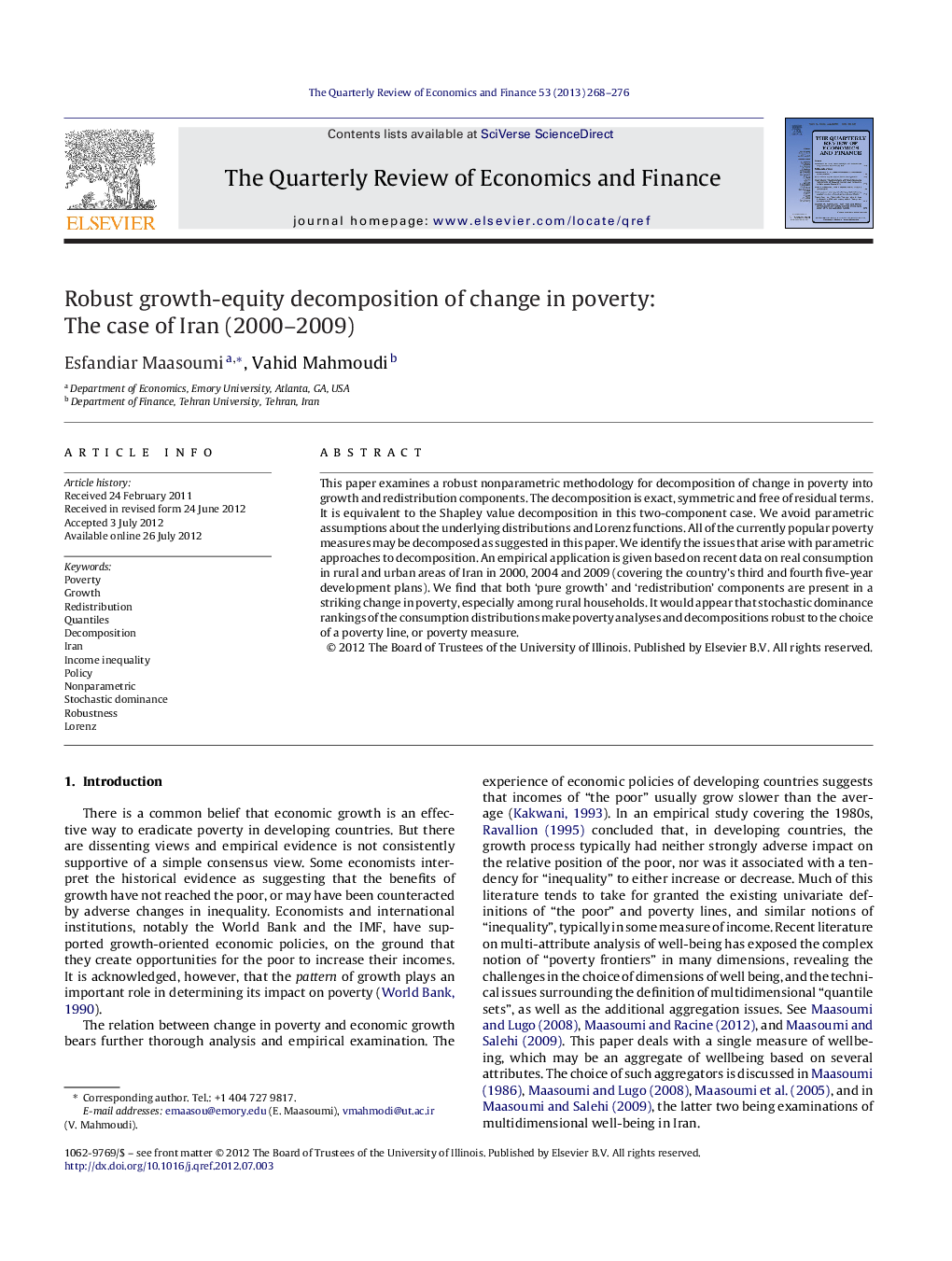| Article ID | Journal | Published Year | Pages | File Type |
|---|---|---|---|---|
| 982196 | The Quarterly Review of Economics and Finance | 2013 | 9 Pages |
This paper examines a robust nonparametric methodology for decomposition of change in poverty into growth and redistribution components. The decomposition is exact, symmetric and free of residual terms. It is equivalent to the Shapley value decomposition in this two-component case. We avoid parametric assumptions about the underlying distributions and Lorenz functions. All of the currently popular poverty measures may be decomposed as suggested in this paper. We identify the issues that arise with parametric approaches to decomposition. An empirical application is given based on recent data on real consumption in rural and urban areas of Iran in 2000, 2004 and 2009 (covering the country's third and fourth five-year development plans). We find that both ‘pure growth’ and ‘redistribution’ components are present in a striking change in poverty, especially among rural households. It would appear that stochastic dominance rankings of the consumption distributions make poverty analyses and decompositions robust to the choice of a poverty line, or poverty measure.
